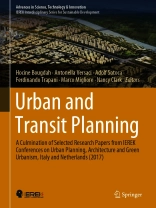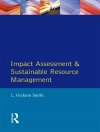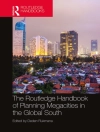A volume of five parts, this book is a culmination of selected research papers from the second version of the international conferences on Urban Planning & Architectural Design for sustainable Development (UPADSD) and Urban Transit and Sustainable Networks (UTSN) of 2017 in Palermo and the first of the Resilient and Responsible Architecture and Urbanism Conference (RRAU) of 2018 in the Netherlands. This book, not only discusses environmental challenges of the world today, but also informs the reader of the new technologies, tools, and approaches used today for successful planning and development as well as new and upcoming ones. Chapters of this book provide in-depth debates on fields of environmental planning and management, transportation planning, renewable energy generation and sustainable urban land use. It addresses long-term issues as well as short-term issues of land use and transportation in different parts of the world in hopes of improving the quality of life. Topicswithin this book include: (1) Sustainability and the Built Environment (2) Urban and Environmental Planning (3) Sustainable Urban Land Use and Transportation (4) Energy Efficient Urban Areas & Renewable Energy Generation (5) Quality of Life & Environmental Management Systems. This book is a useful source for academics, researchers and practitioners seeking pioneering research in the field.
Daftar Isi
Sustainability and the Built Environment.- Urban and Environmental Planning.- Sustainable Urban Land Use and Transportation.- Environmental Transformation: Energy Efficient Urban Areas & Renewable Energy Generation.- Quality of Life & Environmental Management Systems.
Tentang Penulis
Hocine Bougdah is a reader and subject area leader for Architectural Technology and the Environment in the School of Architecture, University for the Creative Arts, Canterbury, UK. He has overall responsibility for the curriculum design, delivery and assessment of the subject area in the school at both undergraduate and post-graduate levels. His research interests focus on the technological, ecological and human/cultural aspects of sustainable architecture. His current research projects are interested in two facets of sustainable design. The first one is looking at low energy, low cost, low impact solutions (Projects include; the experimental low energy house and the use of PV panels for both energy efficiency and visual impact in newly built and refurbished buildings). The second aspect of his current research looks at the role of users as participants in the design/communication processes and community driven projects with a view to streamline the process and empower communities to address climate change mitigation (projects include; community driven projects in the global south, the role of culture in informing the design of urban dwellings, the use of interactive communication in the design process as a way for participatory design/consultation) and or both through the supervision of a number of researchers (currently 4) working on topics aligned with his research interests. Dr Bougdah is actively involved in scholarly activities through his membership of various learned societies (ACADIA, AHRA, IEREK) and editorial/review boards for a number of journals and international conferences (Journal of Islamic Architecture, Environmental Science and Sustainable Development, Sustainability, Architecture and Culture, Plos One, ..). Alongside his academic role, he runs a design/consultancy practice.
Adolf Sotoca has a Ph D Architectue and Urbanism. He is currently a Chair Professor in Architecture at Luleå University of Technology in Sweden and a professor Serra Hunter at UPC_Barcelona TECH of Spain. With clear passion for architecture, he enjoys sharing it with his students though his teachings of urban design studios and theory of architecture and urbanism for years. Professor Sotoca has been Visiting Professor at the Illinois School of Architecture (USA) and at CTU Krakow (Poland), as well as Guest Professor at NU Singapore, ETH Zürich, Berlage Institute Rotterdam, IUA di Venezia, Politecnico di Milano, TU Darmstadt and UAUIM Bucharest. He is also board member of several international institutions on Urbanism education, such as the International Forum of Urbanism and the European Postgraduate Master of Urbanism. His research interests currently lie on the regenerations of obsolete and declining residential areas and has taken the role of leading researcher on several EU projects. He is also co-founder and principal of CSAArquitectes, one of the leading offices on Urbanism in Barcelona which has received a number of prestigious prizes.
Ferdinando Trapani is an Architect and Associate Professor in the Department of Architecture at Polytechnic School of Palermo University (UNIPA), Italy. He received his Architecture Degree in 1986, his Ph D in 1999 and became Researcher in Urban Planning in 2001. He is interested in the planning techniques for solving problems in urban & territorial regeneration and participation applications with ICT. Also, his research has been focused on the integration of spatial planning with economics and sustainable tourism in the relational way. He was member of the National Commission for Infrastructural Policies of the Italian Istituto Nazionale di Urbanistica. As a result of his research, he is principal or co-principal investigator on more than 60 papers in several journals, more than 50 communications to international conferences, 2 books and more than 40 books chapters. Also, he was responsible for his Department of several European project in international partnerships regarding place based development policies. Currently, arch. Trapani is involved in the Erasmus Plus European project ‘Sustainable Management of Cultural Landscape’ as investigator of pilot case study, from 2015 is member of Regional Observatory of Landscape’s Quality, and an Editorial Board Member and reviewer for different international journals, an Editor for different books, member of an International Scientific Committee, a Chair of international conferences and an active member in different national associations.
Marco Migliore is an Associate Professor in the Department of Civil, Environmental, Aerospace, Materials Engineering at University of Palermo, Italy. He received his Civil Engineering Degree with honor at University of Palermo in 1997 and his Ph D in 2000. In 2000 was visiting researcher at the Institute for Transport Studies, University of Leeds (UK). He became researcher in 2000, associate professor in 2005. He teaches Transport System Theory, Transport Planning and Sustainable Mobility Policies, University of Palermo. He is member of the committee of the Doctorate in “Civil, Environmental, Materials Engineering”. He is currently the Coordinator of the Degree and of the Master Degree Course in Civil Engineering. He has carried out his scientific activity studying the supply and the demand transport models, for passengers and freights, and in particular the optimal design of the urban and regional transport network. He acts as frequent reviewer for high-impact scientific journals and he is an Editorial Board Member for an ISI international journal. He has participated in many prestigious conferences related to transport research topics. He has been responsible for 4 research projects related to transport planning, climate change and sustainable transport policies.
Nancy M. Clark is an associate professor in the school of architecture in the UF college of Design, Construction and Planning. She is a founder and Director of Global Lab research consortium, a cross-disciplinary research initiative with the University of Florida. She is also principal of an architectural practice and has exhibited, published and received design awards for her building projects throughout the U.S. and Canada. Clark is currently the Assistant Director in charge of Graduate Programs at the University Of Florida School Of Architecture and serves as the Coordinator of the G|So A Ivan Smith Endowment. She teaches in the graduate and undergraduate design studio as well as lecture and seminar courses intended to advance research of innovative urban development, sustainable environments, and alternative modes of practice and design. Clark’s architectural work includes a range of projects from residential, commercial and institutional to experimental theatre design. She has received over eight American Institute of Architecture (AIA) awardsin the past ten years and her work has been published in several journals such as Florida Inside Out, the Florida-Caribbean Magazine, and SITES. She has lectured and exhibited her work and research extensively including Rome, Vienna, Rio de Janeiro, Toronto, Seattle, Miami, Orlando and Sarasota. Clark’s ongoing research with Global Lab seeks to engage the discipline of architecture by connecting designers, programmers, curators and artists in order to explore innovative and diverse forms of research and analysis as well as new paradigms for practice and the built environment.
Antonella Versaci is a researcher and assistant professor with more than 10 years of experience, at the Faculty of Engineering and Architecture at the University “Kore” of Enna. She is responsible of the “Laboratory of Restoration of Architectural and Cultural Heritage” and teaches “Architectural Restoration” and “Laboratory of Architectural Restoration” within the Master of Architecture. She is also an associate researcher at the Institut Parisien de Recherche Architecture Urbanistique Société (IPRAUS), a research laboratory of the ENSAPB – National Superior School of Architecture of Paris-Belleville (UMR 3329 Ausser). Her research applies to the issues of safeguarding and conservation of historic buildings and landscape, with particular attention to cultural heritage spread across the territory and to the protection of historic centers, as well as to their survey, diagnosis, classification and valorization. Professor Versaci is the author of over 90 refereed publications.












